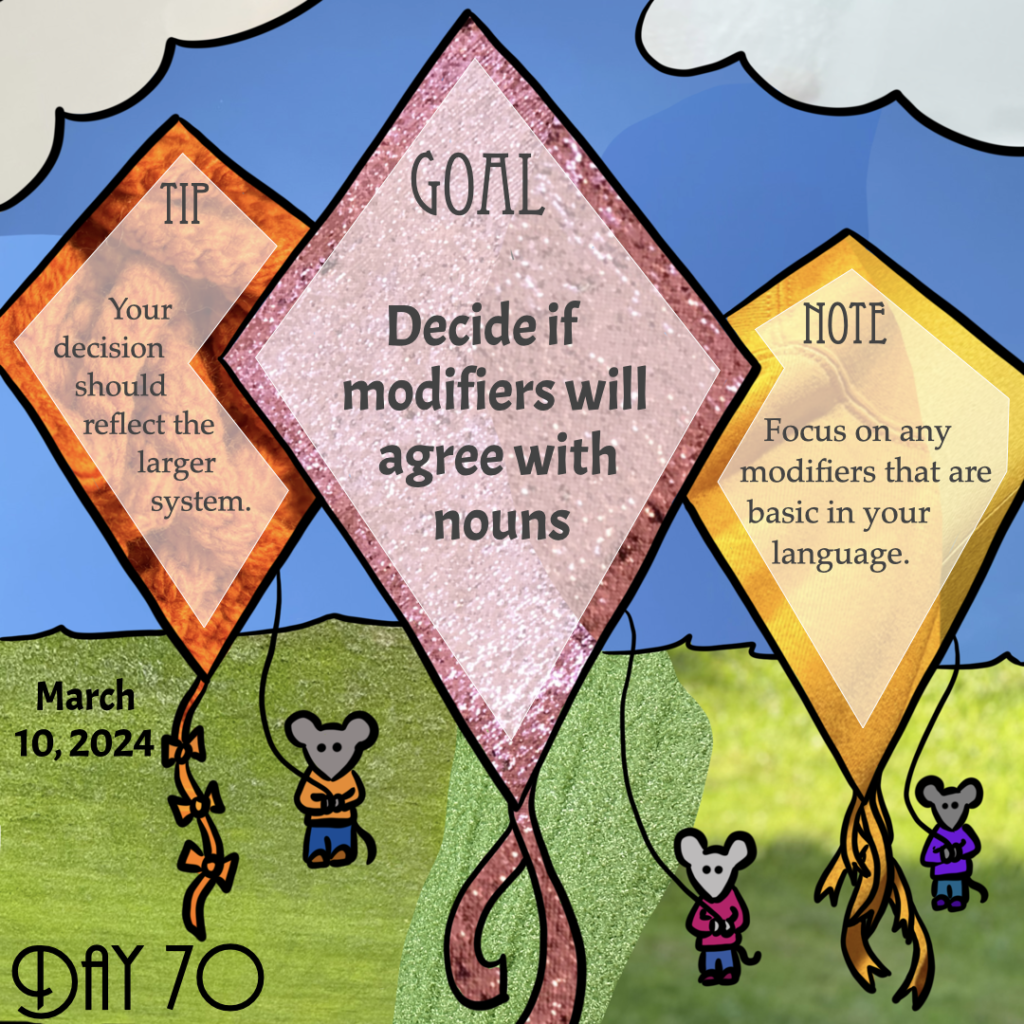
Goal: Decide if modifiers will agree with nouns
Note: Focus on any modifiers that are basic in your language.
Tip: Your decision should reflect the larger system.
Work focus: Learn/Brainstorm/Try
Today’s focus is on whether your modifiers will agree with the nouns they co-occur with. Modifiers can agree in number, class, and/or case (i.e. any inflection your nouns occur with can also occur with or be reflected in modifier forms). This decision will necessarily be connected to other language features you have selected. For instance, if you have noun class, you might consider marking modifiers to agree with any class-marking. The same goes for number. “Agreement” may mean there are entirely different forms for singular/plural or different classed nouns (e.g. suppletive forms), especially on forms like demonstrative modifiers.
For now, the focus is on modifiers that are basic in your language—modifiers that are part of the basic vocabulary. In other words, these modifiers don’t come from other sources, such as a noun that can modify another noun. Modifiers you might want to consider include adjectives describing basic features of nouns, such as size (big, small, tall, short, wide, narrow), proximity (near, far), touch/texture (hot, cold, rough, smooth), color (red, blue, green, dark, light), and taste (sweet, sour). Other modifiers that are often basic include demonstrative forms similar to English’s “this, that, these, those.”
You don’t need to come up with all the forms today—you will have other days to explore those details, beginning with decisions focusing specifically on demonstrative forms tomorrow. Right now, you need to decide if modifier agreement fits into your language and the system you’re creating.
